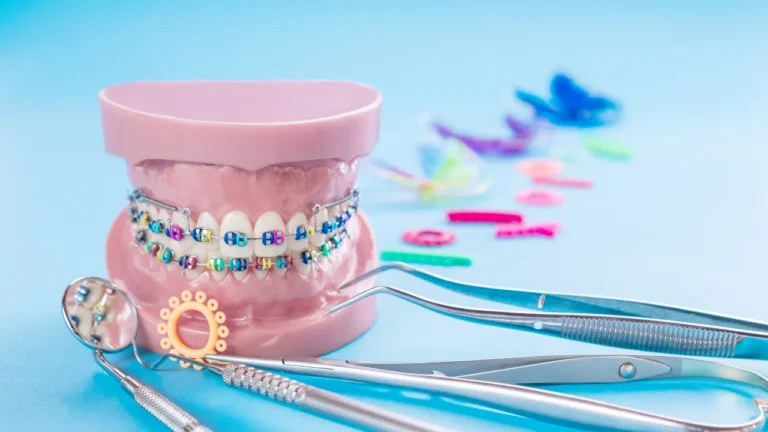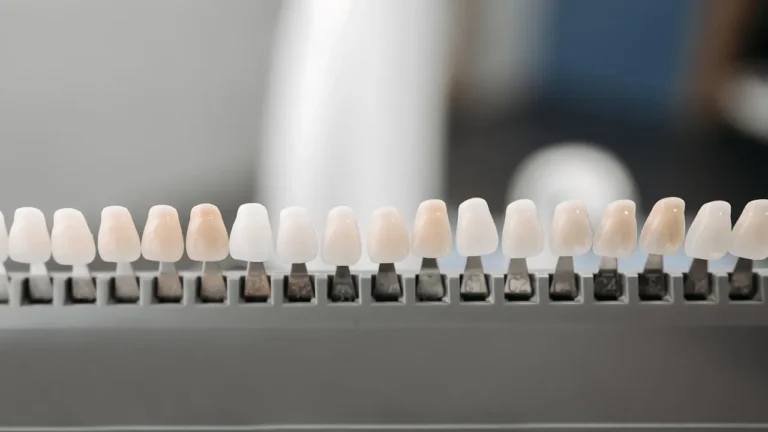Dental Bridges In Pretoria: MAC Dental Studio
Restore missing teeth with dental bridges in Pretoria. Custom bridges for a natural look at MAC Dental Studio. Contact us today!
Exceptional Dental Care
With Skilled Professionals
Experience top-notch dental care with our dedicated team at Mac Dental Studio, where your health and comfort are our priorities.
1. Schedule Your Visit
Easily book your appointment through our user-friendly website and choose a time that fits your schedule.
2. Personalized Consultation
During your visit, our experienced dentists will thoroughly assess your dental health and discuss personalized treatment options with you.
3. Achieve Your Ideal Smile
We will create a customized treatment plan tailored to your needs, helping you achieve and maintain a healthy, beautiful smile.
Easily Book Your Dental Appointment
What are Dental Bridges?
Dental bridges are fixed dental restorations used to replace one or more missing teeth by anchoring artificial teeth to adjacent natural teeth or implants.
They help restore your smile, improve chewing function, and maintain the shape of your face.
Types of Dental Bridges
- Traditional Dental Bridges: These are the most common type of bridges. They consist of one or more false teeth held in place by dental crowns that are cemented onto the abutment teeth.
- Cantilever Dental Bridges: Used when there are adjacent teeth on only one side of the missing tooth or teeth. They are not as common and are typically used in areas of the mouth that don’t experience much stress.
- Maryland Bonded Bridges: Also known as a resin-bonded bridge, this type uses a framework made of metal or porcelain that is bonded onto the back of the adjacent teeth.
- Implant-Supported Bridges: These bridges are similar to traditional bridges but are supported by dental implants rather than natural teeth. They provide a very stable and secure solution.
Procedure for Getting a Dental Bridge
- Initial Consultation: Your dentist will examine your teeth and discuss the best options for your specific situation.
- Preparation of Abutment Teeth: The abutment teeth are reshaped to accommodate the crowns that will hold the bridge.
- Impressions and Molding: Impressions of your teeth are taken to create a model for the bridge.
- Temporary Bridge Placement: A temporary bridge is placed to protect the exposed teeth and gums while the permanent bridge is being made.
- Final Bridge Placement: Once ready, the temporary bridge is removed, and the new permanent bridge is adjusted and cemented into place.
Benefits of Dental Bridges
- Restoring Functionality: Dental bridges help you chew and speak properly by filling the gaps left by missing teeth.
- Enhancing Aesthetic Appearance: They restore your smile and maintain the natural shape of your face.
- Maintaining Facial Structure: Bridges prevent the remaining teeth from drifting out of position, which helps maintain the structure of your face.
- Preventing Teeth from Shifting: By filling the gaps, bridges prevent other teeth from shifting out of alignment.
Care and Maintenance of Dental Bridges
- Daily Oral Hygiene Practices: Brush twice daily and floss regularly to keep the area around the bridge clean.
- Regular Dental Check-ups: Visit your dentist for regular check-ups and professional cleanings to ensure the bridge remains in good condition.
- Diet Considerations: Avoid sticky and hard foods that could damage the bridge.
Cost and Insurance Coverage
- Average Cost of Dental Bridges: The cost of dental bridges in South Africa can vary widely depending on the type of bridge and materials used. On average, the cost ranges from ZAR 4,000 to ZAR 15,000 per tooth.
- Factors Affecting the Cost: The complexity of the procedure, the materials used, and the dentist’s experience can all affect the overall cost.
Insurance and Payment Options
Many dental insurance plans cover a portion of the cost of bridges.
Check with your provider to understand your coverage.
Some dental clinics also offer payment plans to make the procedure more affordable.
Expert Insights
Dr. Nkosinathi Mhlongo, a renowned dental specialist in Johannesburg, mentioned, “Dental bridges are a crucial part of restorative dentistry, especially for patients who have lost teeth due to trauma or decay. They not only restore function but also significantly improve a patient’s confidence and quality of life.”
Latest From Our Blog
Frequently Questions Answered
With proper care, dental bridges can last between 5 to 15 years, and sometimes even longer.
Modern dental bridges are designed to blend seamlessly with your natural teeth, making them hardly noticeable.
Contact your dentist immediately. A loose bridge can lead to further dental issues if not addressed promptly.
Yes, you can eat most foods with a dental bridge. However, it’s advisable to avoid very hard or sticky foods that could damage the bridge. Start with soft foods and gradually reintroduce harder foods as you become accustomed to the bridge.
Cleaning under a dental bridge requires special care. Use a floss threader or interdental brushes to clean the area between the gums and the bridge. Regular brushing and using an antibacterial mouthwash can also help maintain oral hygiene around the bridge.
Dental bridges can be made from various materials, including porcelain, ceramic, gold, alloys, or a combination of these materials. Porcelain and ceramic bridges are often chosen for their natural appearance, while metal bridges are selected for their strength and durability. Your dentist will recommend the best material based on your needs and the location of the bridge in your mouth.








